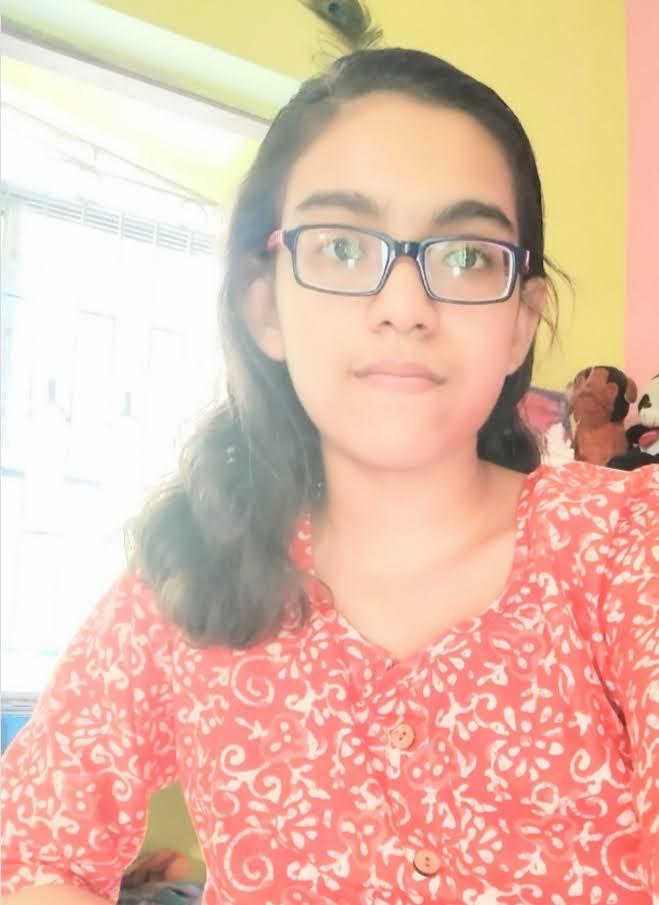Why do you write poetry?
I write poetry because it’s my catharsis — the slow unraveling of all that knots itself tight inside me. It’s how I transmute the unbearable: the tidal weight of memory, the ache that blooms without permission, the narrow silence. Words are the only things that don’t flinch when I hand them the heavy parts. I write because the world presses in, and I need a way to press back. How else would I carry the ache that blooms without mercy? To me, language is the only vessel capacious enough to hold both the tenderness and the tempest.
In your writing, is there ever a hesitation in revealing too much — a moment when vulnerability feels like a risk rather than a release?
Always. But I’ve learned that shame is inherited, and silence serves no one. If I don’t name what haunts me, it festers. I’d rather pin it to the page and watch it squirm. There’s power in that — in saying, here it is. This is what I carried. And sometimes, once it’s out there, it loses its teeth.
How do you know when a poem about loss is finished? Or is it ever truly finished?
I don’t know if it’s ever truly finished. Poems about loss tend to hum beneath the surface even after I’ve put the pen down. Sometimes it feels finished when the ache feels named or when I can read it back without needing to rewrite the wound. Other times, it’s more like accepting that the poem has said all it can for now. Grief shifts, and maybe the poem will too. But there’s a moment when it feels honest enough to let go, and that’s usually when I stop.
What is the hardest part of writing about personal loss?
The hardest part is the fear of not getting it right — reducing something vast and complicated into words that can’t possibly hold it all. Personal loss is so tangled with memory, and memory itself is slippery. There’s also the vulnerability, knowing that once it’s on the page, it’s no longer just mine. People will read it, interpret it, maybe see something of their own loss in it. And sometimes, the hardest part is simply facing it. Writing demands that I stay in the feeling long enough to understand it, and that’s not always easy.
What’s the most unforgivable thing you’ve written?
That’s a tough one. I think the most unforgivable things are often the most honest. There have been poems where I’ve written about people I love in ways that felt like betrayal, simply because I told the truth — or at least my version of it. Sometimes the act of writing forces me to confront feelings I’d rather leave buried. Regret, anger, resentment — all the sharp-edged things. But I also think poetry has a way of making room for both the unforgivable and the necessary.
What’s the last thing you stole?
My mother’s voice. I slip it into lines sometimes — the way she said don’t rush your coffee and swore under her breath. I never asked for permission. I never will. Some things feel like they belong to me just as much as they belonged to her. Maybe it’s selfish or survival, who knows.
If your mother could read your poetry, what do you think she’d say?
She would’ve hated it for sure. Maybe she’d be upset, or just tired of seeing herself on the page. I can almost hear her saying, Why must everything be so ugly? And I’d get it. No one wants to be held up to the light like that, every flaw magnified. But I think — or maybe I hope — she’d also understand that the ugliness isn’t all there is. That I write it because I’m trying to make sense of it. Plus, even the ugly parts deserve to be remembered.
Have you ever written a poem just to spite someone?
Of course. I think most poets have, whether we admit it or not. There’s something cathartic about sharpening a line and aiming it at whoever left a bruise. But spite is tricky. It can feel satisfying in the moment, but it rarely holds up. The best poems — even the angry ones — usually come from something deeper than just wanting to get back at someone. Still, I won’t pretend I haven’t enjoyed the occasional well-placed metaphor that stings like a slap.
What poetry collections or poets do you find yourself returning to? And for someone who doesn’t usually read poetry, what would you recommend as a way in?
I’m a devoted admirer of Charles Bukowski, Anne Sexton, and Mary Oliver — their work has a kind of raw honesty that stays with you. Ada Limón and Louise Glück are also among my favorites. Some collections I’d recommend are On Drinking by Bukowski, The Carrying by Ada Limón, and A Self-Portrait in Letters by Anne Sexton.
As for non-readers, I’d say start with poets who make language feel effortless — Mary Oliver’s Devotions, Ocean Vuong’s Night Sky with Exit Wounds, or even something like Love is a Dog From Hell by Bukowski if you want poetry with a bite. Poetry doesn’t have to be intimidating; it just has to make you feel something.
About the Author
Sreeja Naskar is a teen poet whose work delves into the darker, more introspective aspects of the human psyche. Her poetry has been featured in various literary magazines, reflecting themes of emotion, identity, and the contrasts of light and shadow. Her debut collection, Of Sunflowers and Silhouettes, was published by Bribooks.













